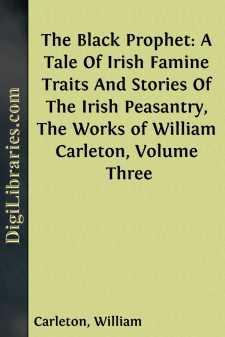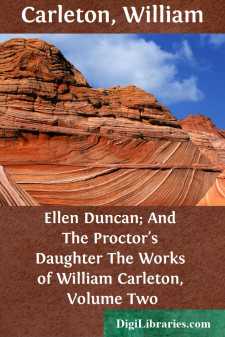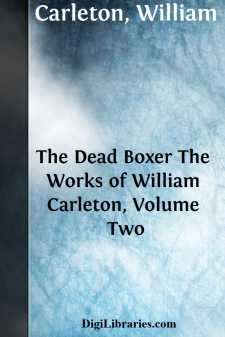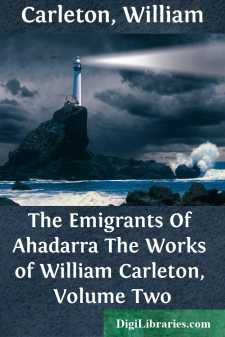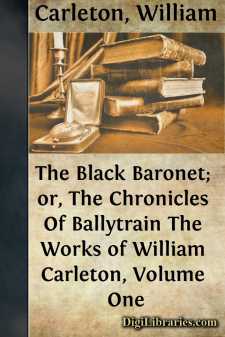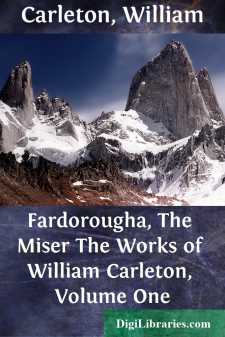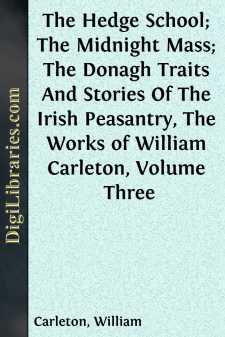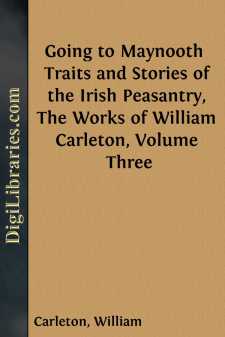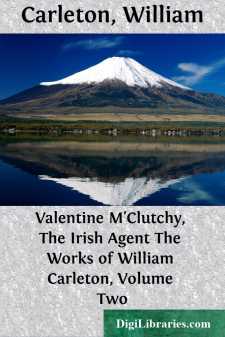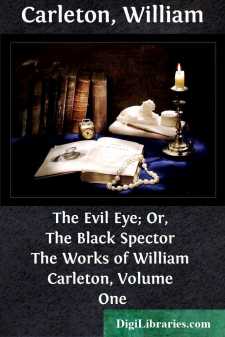Categories
- Antiques & Collectibles 13
- Architecture 36
- Art 48
- Bibles 22
- Biography & Autobiography 813
- Body, Mind & Spirit 142
- Business & Economics 28
- Children's Books 17
- Children's Fiction 14
- Computers 4
- Cooking 94
- Crafts & Hobbies 4
- Drama 346
- Education 46
- Family & Relationships 57
- Fiction 11829
- Games 19
- Gardening 17
- Health & Fitness 34
- History 1377
- House & Home 1
- Humor 147
- Juvenile Fiction 1873
- Juvenile Nonfiction 202
- Language Arts & Disciplines 88
- Law 16
- Literary Collections 686
- Literary Criticism 179
- Mathematics 13
- Medical 41
- Music 40
- Nature 179
- Non-Classifiable 1768
- Performing Arts 7
- Periodicals 1453
- Philosophy 64
- Photography 2
- Poetry 896
- Political Science 203
- Psychology 42
- Reference 154
- Religion 513
- Science 126
- Self-Help 84
- Social Science 81
- Sports & Recreation 34
- Study Aids 3
- Technology & Engineering 59
- Transportation 23
- Travel 463
- True Crime 29
William Carleton
William Carleton (1794-1869) was an influential Irish writer best known for his vivid depictions of rural Irish life in the 19th century. His most celebrated work, "Traits and Stories of the Irish Peasantry," provides a rich, detailed portrayal of the social customs, struggles, and folklore of Irish peasants. Despite facing criticism for his negative portrayals of certain aspects of Irish life, Carleton's writings are valued for their authenticity and contribution to Irish literature.
Author's Books:
Sort by:
by:
William Carleton
CHAPTER I. — Glendhu, or the Black Glen; Scene of Domestic Affection. Some twenty and odd years ago there stood a little cabin at the foot of a round hill, that very much resembled a cupola in shape, and which, from its position and height, commanded a prospect of singular beauty. This hill was one of a range that ran from north to southwest; but in consequence of its standing, as it were, somewhat...
more...
by:
William Carleton
ELLEN DUNCAN There are some griefs so deep and overwhelming, that even the best exertions of friendship and sympathy are unequal to the task of soothing or dispelling them. Such was the grief of Ellen Duncan, who was silently weeping in her lone cottage on the borders of Clare—a county at that time in a frightful state of anarchy and confusion. Owen Duncan, her husband, at the period about which our...
more...
by:
William Carleton
CHAPTER I. One evening in the beginning of the eighteenth century—as nearly as we can conjecture, the year might be that of 1720—some time about the end of April, a young man named Lamh Laudher O'Rorke, or Strong-handed O'Eorke, was proceeding from his father's house, with a stout oaken cudgel in his hand, towards an orchard that stood at the skirt of a country town, in a part of the...
more...
by:
William Carleton
CHAPTER I.—A strong Farmer's Establishment and Family. It was one summer morning, about nine o'clock, when a little man, in the garb and trim of a mendicant, accompanied by a slender but rather handsome looking girl about sixteen, or it may be a year more, were upon their way to the house of a man, who, from his position in life, might be considered a wealthy agriculturist, and only a step...
more...
by:
William Carleton
CHAPTER I. A Mail-coach by Night, and a Bit of Moonshine. It has been long observed, that every season sent by the Almighty has its own peculiar beauties; yet, although this is felt to be universally true—just as we know the sun shines, or that we cannot breathe without air—still we are all certain that even the same seasons have brief periods when these beauties are more sensibly felt, and diffuse...
more...
by:
William Carleton
PART I. Fardorougha, the Miser. It was on one of those nights in August, when the moon and stars shine through an atmosphere clear and cloudless, with a mildness of lustre almost continental, that a horseman, advancing at a rapid pace, turned off a remote branch of road up a narrow lane, and, dismounting before a neat whitewashed cottage, gave a quick and impatient knock at the door. Almost instantly,...
more...
by:
William Carleton
THE HEDGE SCHOOL. There never was a more unfounded calumny, than that which would impute to the Irish peasantry an indifference to education. I may, on the contrary, fearlessly assert that the lower orders of no country ever manifested such a positive inclination for literary acquirements, and that, too, under circumstances strongly calculated to produce carelessness and apathy on this particular...
more...
by:
William Carleton
GOING TO MAYNOOTH. Young Denis O'Shaughnessy was old Denis's son; and old Denis, like many great men before him, was the son of his father and mother in particular, and a long line of respectable ancestors in general. He was, moreover, a great historian, a perplexing controversialist, deeply read in Dr. Gallagher and Pastorini, and equally profound in the history of Harry the Eighth, and...
more...
by:
William Carleton
CHAPTER I.—An Irish Pair and Spoileen Tent —A Marriage Proposal—An Under Agent—An Old Irish Squire and Union Lord. The town of Castle Cumber it is not our intention to describe at more length than simply to say, that it consists of two long streets, intersecting each other, and two or three lanes of cabins—many of them mud ones—that stretch out of it on each side at right angles. This...
more...
by:
William Carleton
CHAPTER I. Short and Preliminary. In a certain part of Ireland, inside the borders of the county of Waterford, lived two respectable families, named Lindsay and Goodwin, the former being of Scotch descent. Their respective residences were not more than three miles distant; and the intimacy that subsisted between them was founded, for many years, upon mutual good-will and esteem, with two exceptions...
more...


